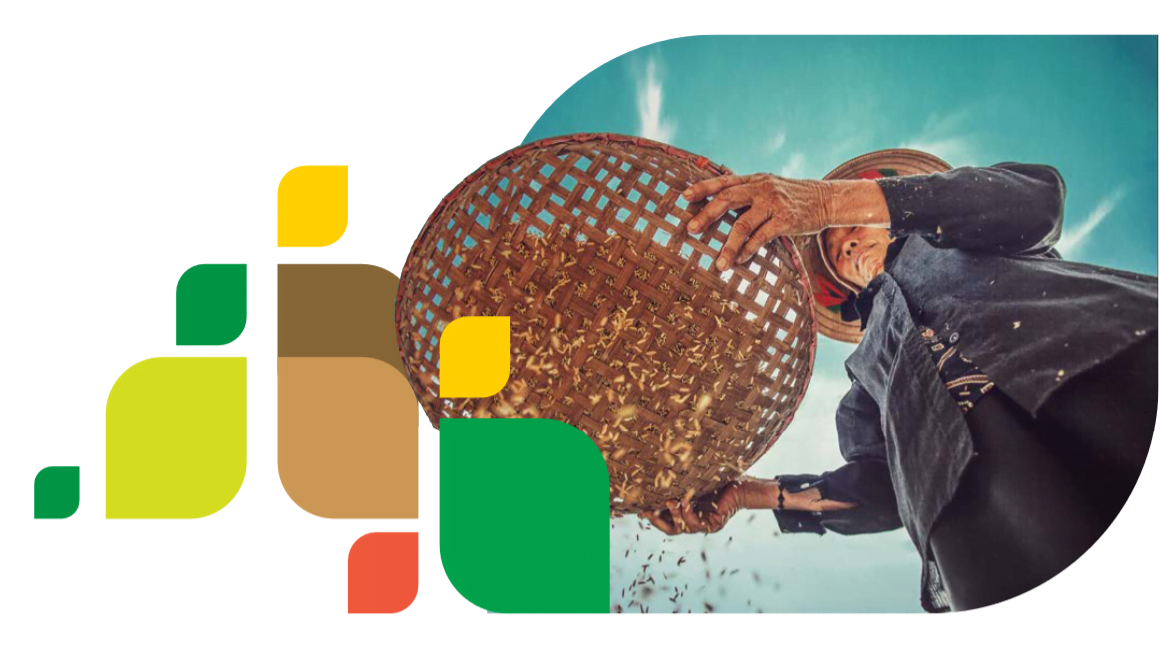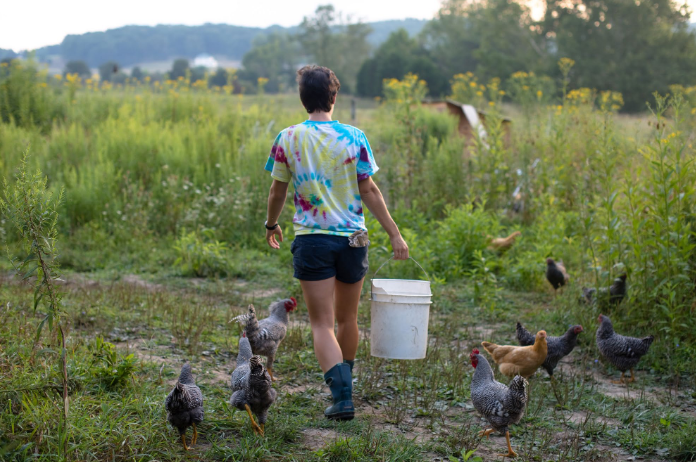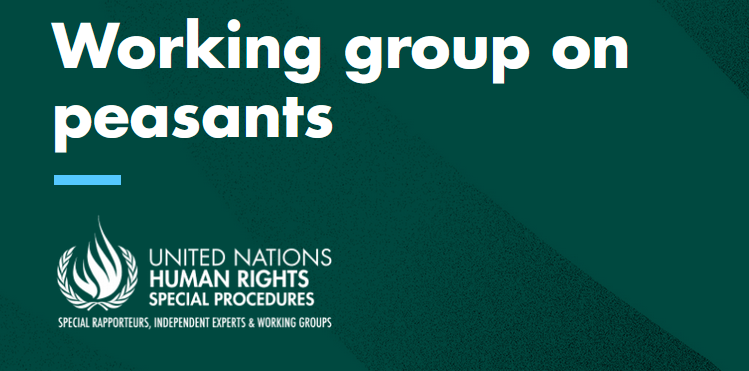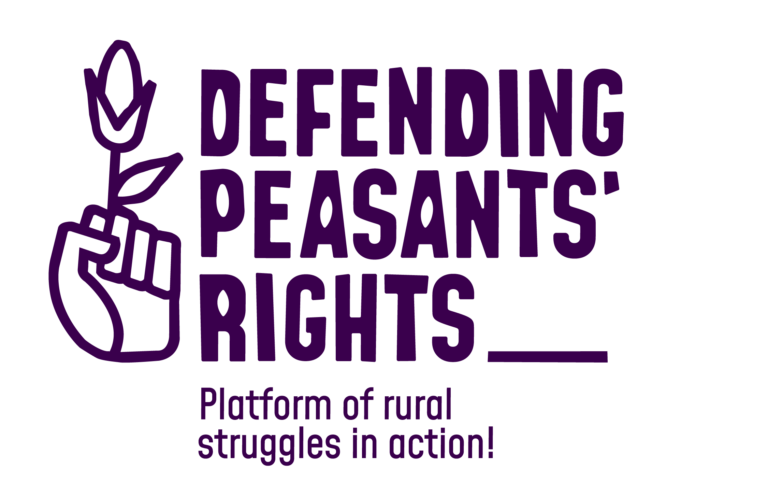The UN Declaration on the Rights of Peasants: using the law to fight for just and sustainable food systems
This article was published in the CETIM magazine “Lendemains Solidaires”, in its first issue dedicated to agriculture (January 2022). You can find the article here.
There’s nothing more paradoxical than the fact that those who contribute most to food security – namely rural communities – are the ones most affected by poverty and malnutrition.
Erected at the service of transnational capital and guided by the unbridled pursuit of profit, food systems dominated by the agri-food industry contribute greatly to this situation. The policies and practices imposed by these systems generate injustices and violations, particularly affecting the rights of peasants and workers in rural areas, those of farming, fishing, pastoral and nomadic communities, indigenous peoples and livestock breeders, not to mention those of urban consumers. To achieve their goals, the dominant agri-business elites advocate the privatization of the commons through the concentration and monopolization of land, markets and natural resources. In so doing, they destroy the social fabric of rural areas and dispossess the people and communities who live and depend on them for their livelihoods.
In the face of this situation, the communities concerned are developing and implementing strategies to demand respect for their rights, and to steer food systems towards greater social and climate justice. Mobilization takes place at different, interdependent and mutually reinforcing levels. At the political level, the aim is to advocate policies promoting alternative food systems that respect human rights, and social and environmental balances. This requires proactive action, putting concrete alternative proposals on the table, based on alternative and sustainable agricultural policies and practices, such as agroecology. On an economic and commercial scale, these pleas aim to reverse the dominant trend that favours the monopoly of the agri-food sector, and steer our societies towards more egalitarian economic and commercial systems that redistribute wealth and are based on international cooperation and solidarity. On a social level, there is the question of a revision of social relations in work and production in rural areas, to make them more just and democratic. Last but not least, the fight to transform food systems is also taking on a legal dimension. The adoption of the Declaration on the Rights of Peasants and Other People Working in Rural Areas (UNDROP) is part of this process.
Using the law
The UNDROP, adopted by the UN General Assembly in December 2018, and the current process for its implementation, are the product of a bottom-up legal construction process. Indeed, the idea emerged within peasant communities as a bulwark against the international agri-food system built at the whim of large transnational corporations. In the early 2000s, the peasant movement, led by La Vía Campesina (2), began thinking about the development of a legal-normative framework codifying rights specific for peasant and rural populations. This pointed the way to strengthening the peasant cause, with the aim of building a legal framework to defend the family farming and claim food sovereignty. In this way, we can see how the political demands of a particular social group gave rise to a legal instrument, which was then used as a tool of political struggle. The dialectical relationship between the political and the legal is therefore fundamental, and worth exploring in greater depth.
The raison d’être of law is that of a normative system with a regulatory vocation. In this sense, it is not an abstract concept, but precisely the regulatory system of social relations in a given country or international system, at a given moment in history. More importantly, law is the result of power relations between different classes or social groups at that given moment. In other words, if the balance of power tilts – at a given historical period – in favour of large transnational monopolistic groups, for example, they will be able to influence the elaboration of legal frameworks and the establishment of rules favourable to them thanks to an acquired degree of political power (3). This is currently the case in food systems, where the agri-food sector enjoys countless advantageous mechanisms and legislation. It is therefore inevitable to define the law through the prism of politics, and to build a progressive international legal framework, it is necessary to rely on a political strategy and a favourable economic climate. In this sense, the achievement of the Declaration is a counter-trend, and a step forward towards the elaboration of a “progressive law” in the field of agriculture.
Today, the UNDROP is a normative reality. The rights of peasants are enshrined in international human rights law. This is a major legal advance for two main reasons. Firstly, the recognition of these rights is in itself a major step forward. Secondly, the content of these rights is consistent with and responds to the legitimate and pressing demands of the international peasant movement. In this respect, it is worth highlighting the progressive nature of the Declaration, in that it establishes provisions whose prerogatives are the defense and promotion of peasant ways of life and work, in opposition to the prerogatives of the elites who dominate today’s agri-food systems.
Article 2.4 of the Declaration affirms that States must interpret “the relevant international norms and agreements to which they have subscribed in a manner consistent with their human rights obligations to peasants and other people working in rural areas“, which means that, for example, agreements favouring the agribusiness sector’s stranglehold on agricultural systems cannot be made at odds with the rights of peasants enshrined in the Declaration. Article 2.5, for its part, specifies that States have an obligation to take the necessary measures to ensure that “non-state actors, such as transnational corporations, respect and strengthen the rights of peasants“. This article obliges States to regulate the activities of the agri-food industry, and gives rights-holders the possibility of using this article to demand that the authorities act accordingly. Article 19 enshrines the right to seeds, according to which peasants must be able to use, with complete autonomy, “their own seeds or other local seeds of their choice, and to decide on the crops and species they wish to cultivate“. The recognition of peasants’ right to seeds is a major step forward, as it challenges the stranglehold of agri-food transnationals on peasant seeds and the legal framework for trade designed in their interests (notably within the framework of the World Trade Organization and the Convention for the Protection of New Varieties of Plants). In an unprecedented move, the Declaration also recognizes other progressive rights, such as the right to land, food sovereignty, biodiversity, water and the means of production. A range of standards which, duly implemented, would be capable of radically transforming food systems with a view to genuine sustainability and equity.
Socializing the Declaration
For the Declaration to become a reality that is not only normative but also tangible on the ground, it must become a reference point at national and international level. In order to be respected and implemented, its provisions must be reflected not only in the legislation of each State, but also in their agricultural policies and practices. Thanks to the advocacy work carried out around the Declaration, several examples of national legislation and standards are emerging, leading to a re-reading of domestic law in various countries. In terms of national appeal mechanisms, judges in a number of countries are settling disputes by referring to the content of the Declaration during judicial proceedings. They are thus creating important jurisprudences. However, for the Declaration to realize its full potential, rural organizations need to acquire the means to make it their own. Since its adoption, large-scale strategies have been put in place to inform, sensitize and train (4) rural organizations, allied organizations, public authorities and the general public on the content and usefulness of the Declaration. These elements are the sine qua non condition for creating the momentum and synergies needed to demand the implementation of this tool.
Indeed, it is only with full knowledge of the facts, and thanks to a process of empowerment, that it will be possible to develop the strategies needed to create a new correlation of forces, and effectively formulate demands and claims to the relevant authorities. The implementation of the Declaration therefore depends on the ability of the rural world and its allies to generate a collective dynamic that works in this direction. The strength of the international peasant movement, and its ability to mobilize and articulate, augurs well for the full realization of peasants’ rights.
Notes:
- United Nations Declaration on the Rights of Peasants and Other People Working in Rural Areas, 2018, A/RES/73/165. ︎
- La Vía Campesina is an international movement that brings together millions of peasants, small and medium-sized producers, landless people, rural women and youth, indigenous peoples, migrants and agricultural workers. ︎ ︎
- During the Middle Ages, for example, the clergy gained the balance of power, which made possible the creation of special – and legal – Inquisition courts to try “heretics”. Or, during the colonial era, slavery was effectively a right incumbent on the colonisers. ︎
- ︎In this regard, the CETIM has developed 12 training sheets on the main rights and elements of the Declaration.







